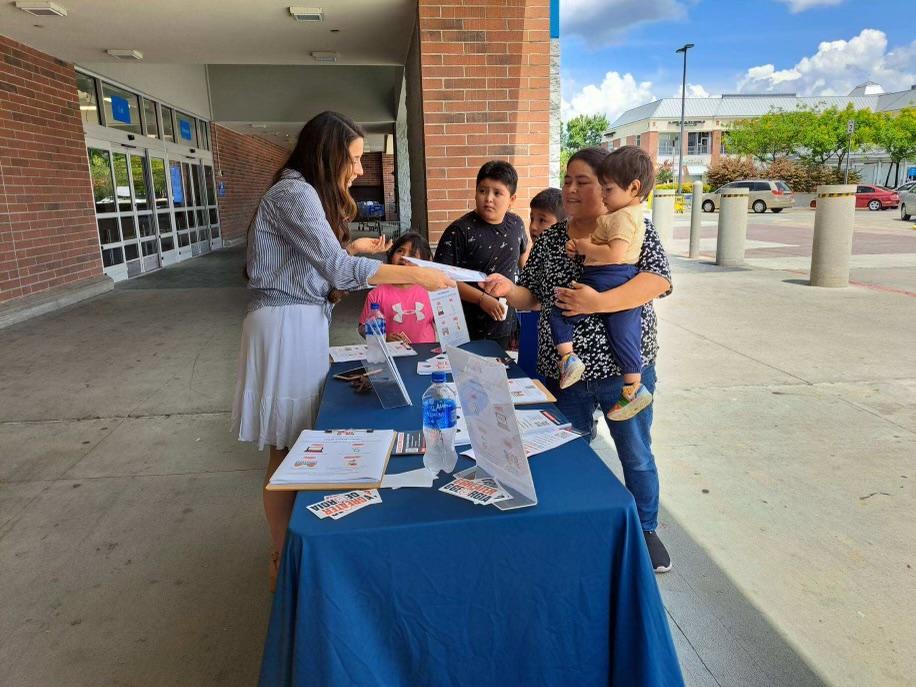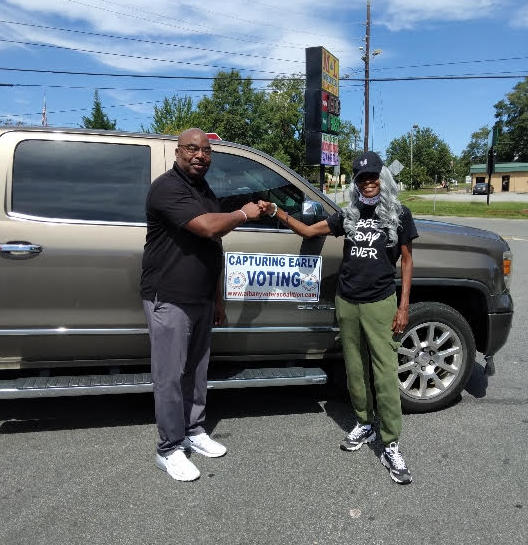
Caption
Greater Georgia, a organization founded in 2021 by former U.S. Sen. Kelly Loeffler to promote conservive candidates, has targeted Hispanic voters with roundtable discussions and events like a July 28 voter registration drive at a Supermercado in DeKalb County.
Credit: Greater Georgia Action





